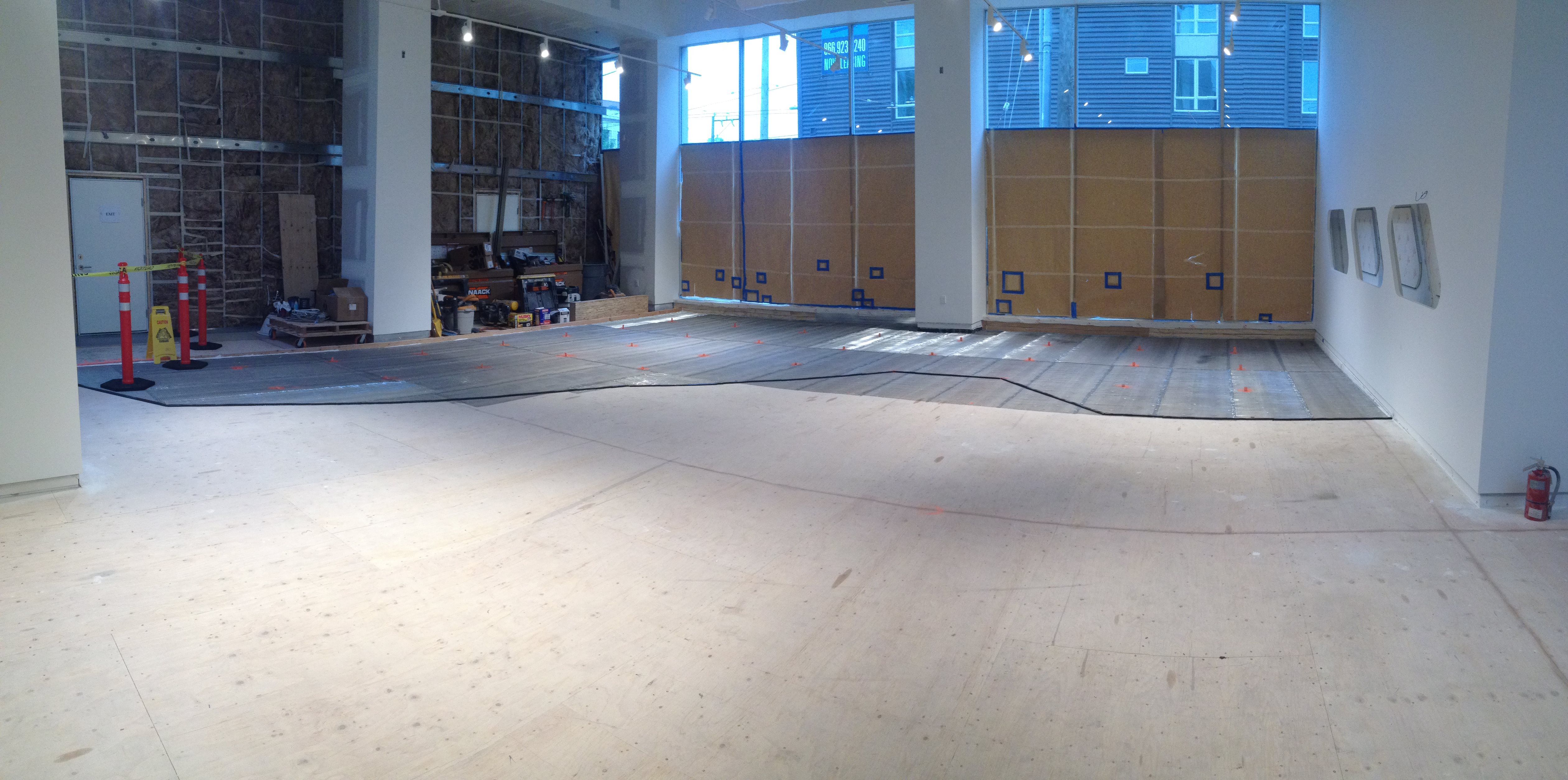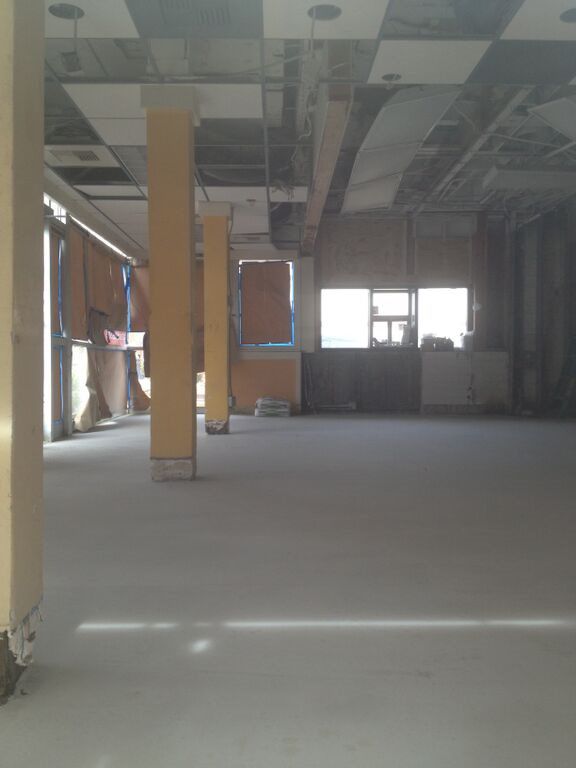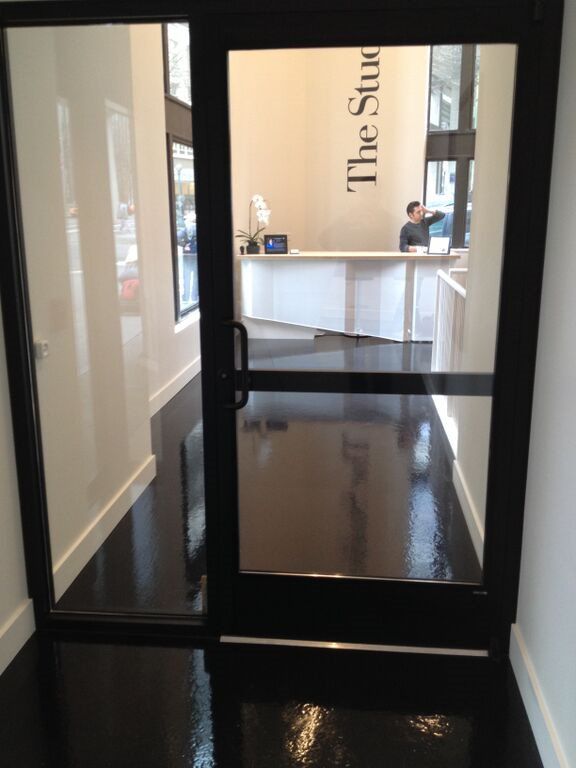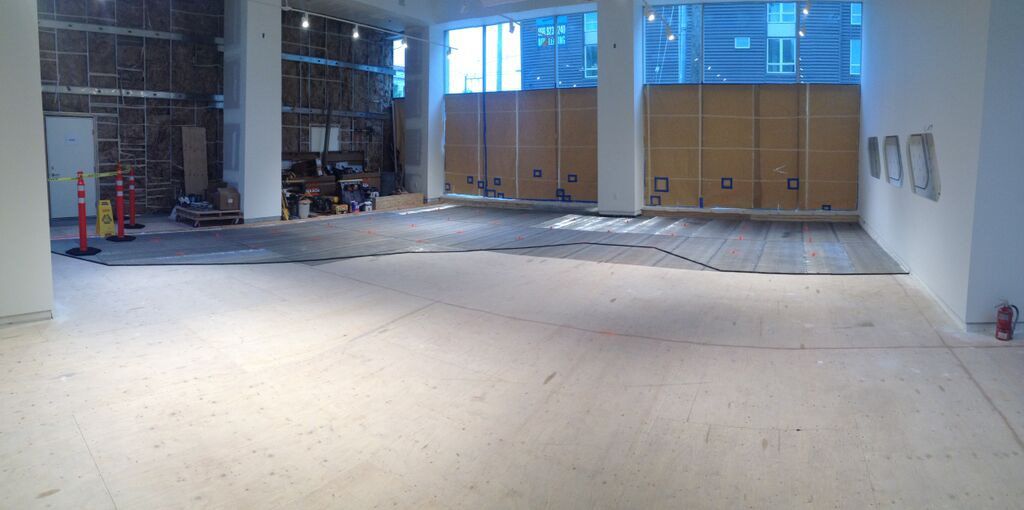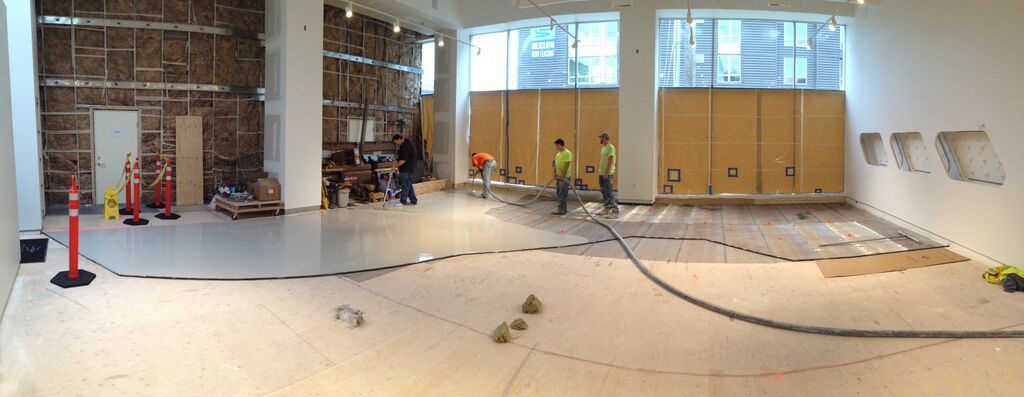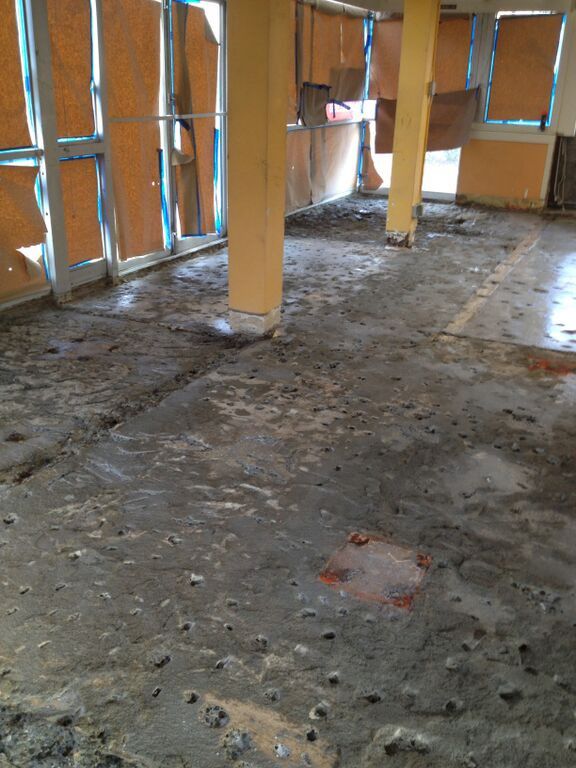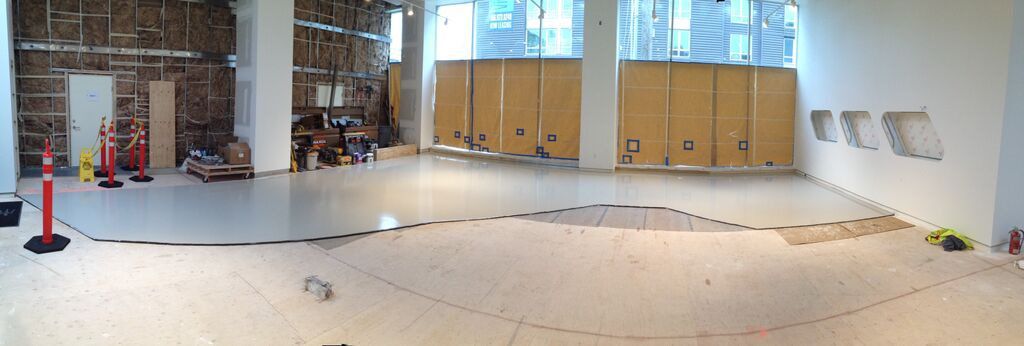Floor Leveling
Whether you have and new or old home, office space, tenant improvement or basement improvement, sagging and out of level floors can be corrected using Gypsum Concrete or Cementitious Self Leveling underlayments. The self-leveling properties of Gypsum Concrete and Cementitious self-levelers allow us to produce a smooth flat and level surface over uneven and sloped floors. We can install both materials from 0”-4” thick in a single lift and rigid insulation board can be used to fill thicknesses greater than 4” thick. Additionally, we can provide mechanical scarification floor preparation, concrete grinding services, and shot blasting preparation for a complete floor solution package.
Floor Leveling with Gypsum Concrete
Gypsum Concrete continues to be one of the most versatile and cost effective floor levelers that we offer. It can be installed from 1/4”-4” thick in a single lift, it dries faster than concrete, it finishes flatter than concrete and it costs less than cement based self leveling products. If you have a sloping basement, sagging floors or floors that have settled over time, we can install Gypsum Concrete over your existing floors and in just a few hours produce a new level, flat and smooth floor.
Applications
Over Concrete
-
Basements: Poured at ¼”-4” thick to correct out of level floors, Gypsum Concrete is a versatile floor leveler. Thicker pours can be installed in multiple lifts or rigid insulation board can be used as filler under the Gypsum Concrete.
-
Converted Living Space: Garages converted to living space benefit from floor leveling. A level floor adds value to your addition and your home. A recent survey shows that 74% of homebuyers associate out of level floors with structural deficiencies.
-
Combined with Radiant Heat: Cold spaces such as bathrooms and basements will benefit from the addition of hydronic or electric radiant heat, creating a comfortable and efficiently heated living space. Gypsum Concrete is the best product for covering hydronic radiant heat tubing or electric radiant heat cables.
Over Wood
-
Settlements in Wood Framed Structures: Structural settling and sagging floors can be leveled using Gypsum Concrete.
-
Minimum Thicknesses: The minimum pour thickness over wood framed floors is ¾” thick. In some cases the pour thickness can be reduced to ½” thick if reinforcement is used.
-
Weight Considerations: Gypsum Concrete weighs approximately 6.5-7.5 lb/sf at ¾” thick and 13-15 lb/sf at 1-1/2” thick.
Common Leveling Approaches
-
Plane Level: The most common method of floor leveling is called a “Plane Level” finish. The self-leveling properties of the Gypsum Concrete allow us to produce a finish that is flat and smooth, with a small variance in the floor allowed to meet existing elevation requirements or specific thickness requirements at doorways and staircases. The floor is level in one direction and flat or planar in the transverse direction.
-
Laser Level: Laser Leveling is suited for flooring installations that require a smooth, flat, and level floor in both transverse floor planes. Grade marker tabs are set on a grid pattern throughout the floor and cut off to the correct elevation with the aid of a self leveling laser. This method will produce the best floor for floating laminates, glue down wood flooring and large tile installations. The only drawback to Laser Leveling is the floor must be leveled from the highest elevation, which usually requires more material and translates to a more expensive installation when compared with Eye Leveling.
Floor Leveling with Cementitious Self-Leveling Products.
Cementitious Self-Leveling products simulate the leveling properties of water. The product line encompasses four main product that are designed to solve specific floor leveling problems from thin resurfacing toppings to thicker fills which require a non-shrinking cementitious product.
Self-Leveling Cementitious
Products with a blend of Gypsum Cement or Portland Cement base with the addition of polymer additives, super plasticizers, and set modifiers to produce a product that flows like water when mixed. In general, these products are designed to be installed thin from 1/8” up to 1” thick, but can also be extended with pea gravel for thicker fills. They can be used to resurface floors both as an underlayment for flooring goods and as an overlayment that can be used as a wear surface when a proper sealer is applied. Strengths range from 4,000-10,000 psi depending on the product selection.
Self-Drying Cementitious
The same properties of the Self-Leveling Cementitious products with additional additives to create a product that consumes all mix water rapidly, allowing floor covering to be installed 16-24 hours after placement. These are life savers for a contractor that is on a tight time schedule or for projects that need to be reopened to the public quickly.
Calcium Aluminate Self-Leveling
A special blend of hydraulic calcium aluminates that form high early strength. Generally used in specialty applications which require high chemical resistance and in industrial applications.
Cementitious Skim/Patching
With little or no aggregates these products are used for skim coating over concrete, wood, tile, masonry, tile, and as an embossing leveler over vinyl products. Most have self-drying additives and can be installed from ½” thick to a true “featheredge” or “zero”.
Every floor leveling project is different with unique challenges, we will come out and evaluate what products are best suited for each application based on the best practices for installation, our many years of experience, and your expectations for the job. With over 100 years of combined experience, our staff has the technical expertise, proper equipment and experienced installers to get the job done right


